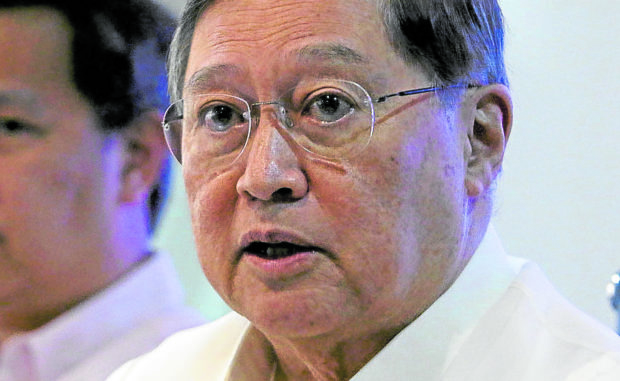MANILA, Philippines — Saying that emerging financial technology players — firms that use digital technologies to deliver financial services — are prone to fraud, the government is ramping up surveillance not only of their registration with regulators but also their tax payments.
“All the regulators and the tax authorities are focusing now on the digital space, because there’s a very big danger of fraud, of violations of the laws in the digital space,” said Finance Secretary Carlos Dominguez III.
Dominguez said the Bangko Sentral ng Pilipinas (BSP), the Department of Finance (DOF), the Bureau of Internal Revenue (BIR) and the Securities and Exchange Commission (SEC) had been closely monitoring these fintech firms’ registration and tax payments.
As digital transactions surged in the country because of COVID-19 lockdowns, the BSP stopped the operation of social media payment platform Lyka in July because of registration and tax problems.
For the first quarter alone, the BSP reported a 276-percent surge in the volume of transactions and a 127-percent increase in value, compared to the figures recorded during the same month in 2020.
In the case of Lyka, a Hong Kong-based firm that made the Philippines its first country of operation, found irregularities in registration compliance and had been “studying the case on possible tax issues on its operations,” Finance Assistant Secretary Dakila Napao said.
Tax compliance
The BIR officials were unable to provide further updates on their investigation of Lyka on Sunday.
But Dominguez said “we are looking not only at Lyka, but all the other transactions that are taxable going through the digital space. The SEC is going through all these digital companies to check whether or not they are registered with the SEC as they should be.”
The Inquirer earlier reported that BIR records showed that while Lyka had been registered with the tax agency’s revenue district office 39 in Quezon City, it was allegedly “not paying taxes.”
Dominguez said the government was also working on monitoring the receipts of transactions being paid through GCash, PayMaya and other digital payment platforms.
Marissa Cabreros, deputy commissioner of the BIR, said on Sunday that the agency was verifying tax compliance of fintech companies in the country from a list provided by the SEC.
“All taxpayers in the digital arena are taxpayers, too — they’re required to comply and observe tax rules and regulations,” Cabreros said.
“We do encourage them to register and pay taxes. Having to do their business online through ICT (information and communication technology) is just a mode of doing business. They should likewise comply just like how traditional or brick-and-mortar businesses are required to register and pay their taxes,” she added.
Last month, the DOF said 2,282 online-based retailers and service providers had already registered with the BIR, and in September, data showed that 105 social media personalities and content creators were already registered with the BIR and the DOF.
